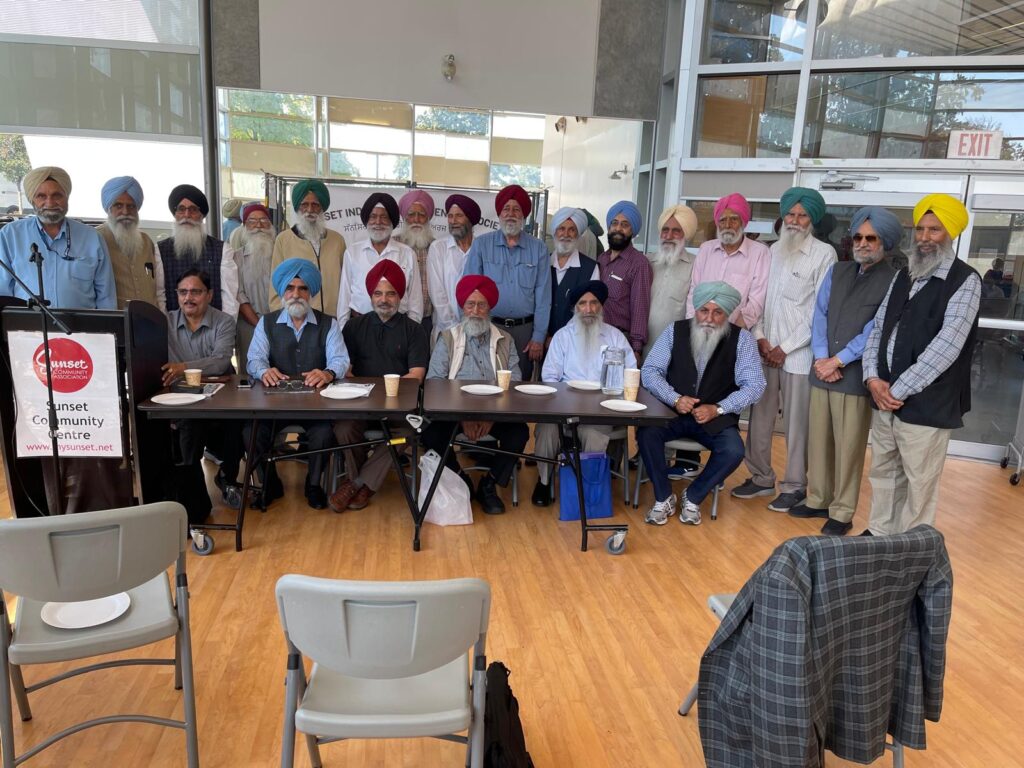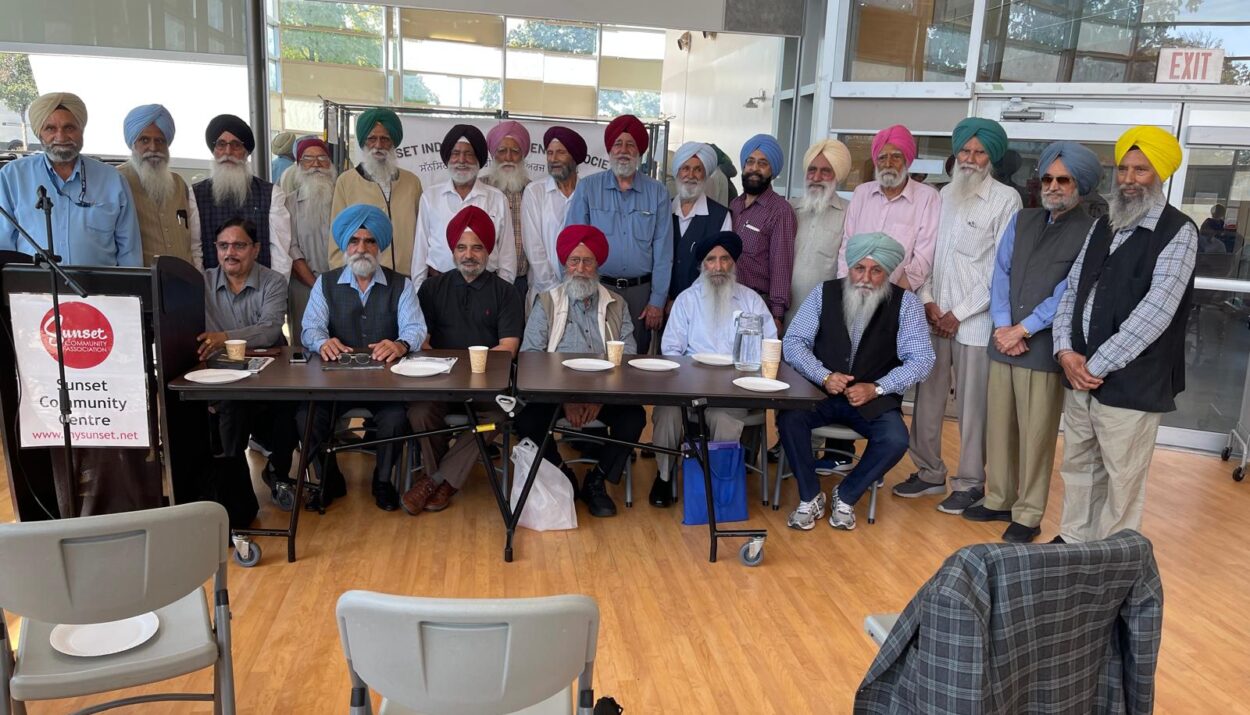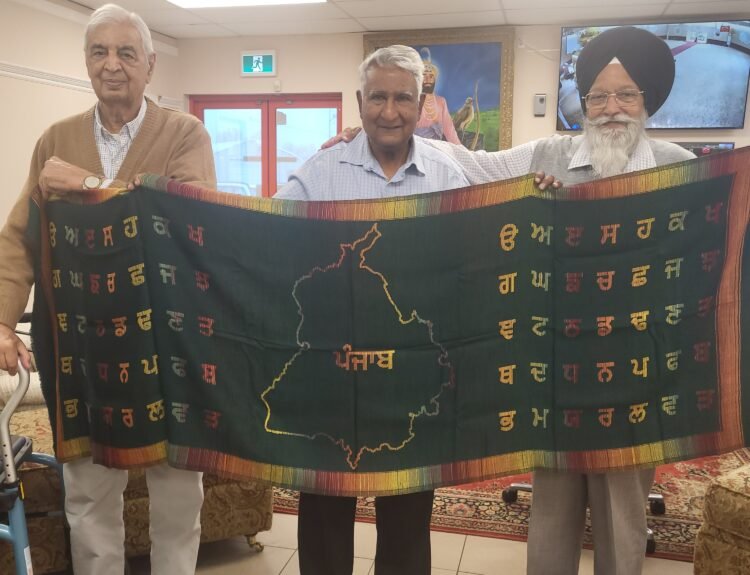By Zile Singh
All countries in the world commemorate the Teachers’ Day on different days in their own ways. The United Nations Educational, Scientific and Cultural Organization (UNESCO) proclaimed October 5th to be World Teachers’ Day in 1994. On this day, the Canadian Teachers’ Federation and its member organizations across the country celebrate World Teachers’ Day through a public awareness campaign that highlights the contributions of the teaching profession. In the United States, it is celebrated in the first week of May as Teachers Appreciation Week. In India the Teachers Day is celebrated every year on the 5th of September to mark the birthday of President Dr. Sarvepalli Radhakrishnan. Born on 5th September 1888, he was a great scholar, an ideal teacher, and a Bharat Ratna Awardee.
The Sunset Indo-Canadian Seniors’ Society, Vancouver celebrated the Teachers’ Day. There are about twenty members of the Society who were teachers at different levels teaching different subjects back home in Punjab. Some of them told the tales of their teaching career.

There are many professions. Teaching is one of them. Teaching can be of religion, mathematics, history, economics, political science, geography, physics, chemistry, cookery etc. etc. Teaching can be formal as well as informal. Formal teaching is a structured, curriculum-based, teacher-directed learning process that occurs in educational institutions like schools and universities, with clear learning outcomes and systematic evaluation. In contrast, informal teaching is self-directed, unplanned learning that arises from everyday experiences, daily life, work, or leisure, lacking a fixed structure, timetable, or curriculum. In an informal way, a person remains a teacher and also a student throughout his life. As far as the formal teaching is concerned, a teacher is every child’s first acquaintance when he starts school. He is the one who holds the child’s hands and guides his steps to take the first giant leap into the learning journey. A good teacher can have a lasting impression on a child and can make school the most wonderful place.
Teachers are the backbone of our society as they enrich human lives with knowledge. Teachers play a significant role in building a nation by educating the younger generation. Teaching is a noble profession requiring much devotion and hard work. Undoubtedly, teachers leave an everlasting impact on our lives with their valuable guidance and encouragement. A teacher’s influence is not limited to the classroom, but it is there throughout our lives. Wisdom and humility are the core spirit of an ideal Teacher. The saying “Aape guru,Appe chela,” which translates to “Himself the Master and himself the Disciple,” signifies Guru Gobind Singh’s profound humility and wisdom. He baptized five disciples and got himself baptized by them. On the other hand, though it is a story of an ancient epic, the role of Dron Acharya is quite despicable smacking arrogance and caste consciousness. Dron, as his teacher, got cut off the right-hand thumb of his disciple Ek Lavya- an ace archer of a low caste.

The best teachers are those who make a significant impact through their teaching and knowledge, inspiring generations. Examples include Sir Isaac Newton, Pythagoras, Dr. Sarvepalli Radhakrishnan, Albert Einstein, Aristotle, John Adams, and Savitribai Phule.
“Good teaching is more a giving of right questions than a giving of right answers.” – Josef Albers.
“The mediocre teacher tells. The good teacher explains. The superior teacher demonstrates. The great teacher inspires.” – William A. Ward
Two notable quotes by Savitribai Phule on teaching, “Education is the greatest weapon to eradicate social evils. Educate a girl, empower a generation.”
Zile Singh is a well-respected columnist. He has authored “Truths of Life- Life Enlightened.” It is on amazon
















